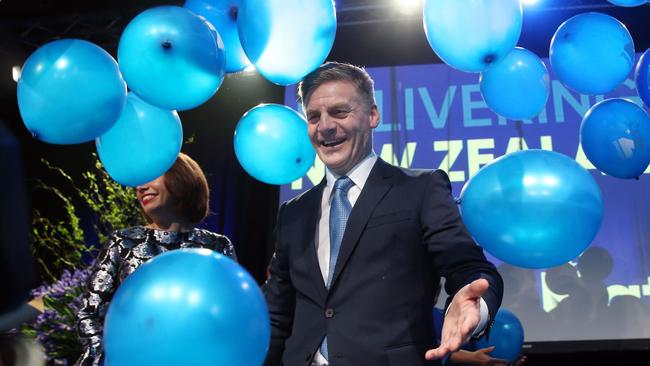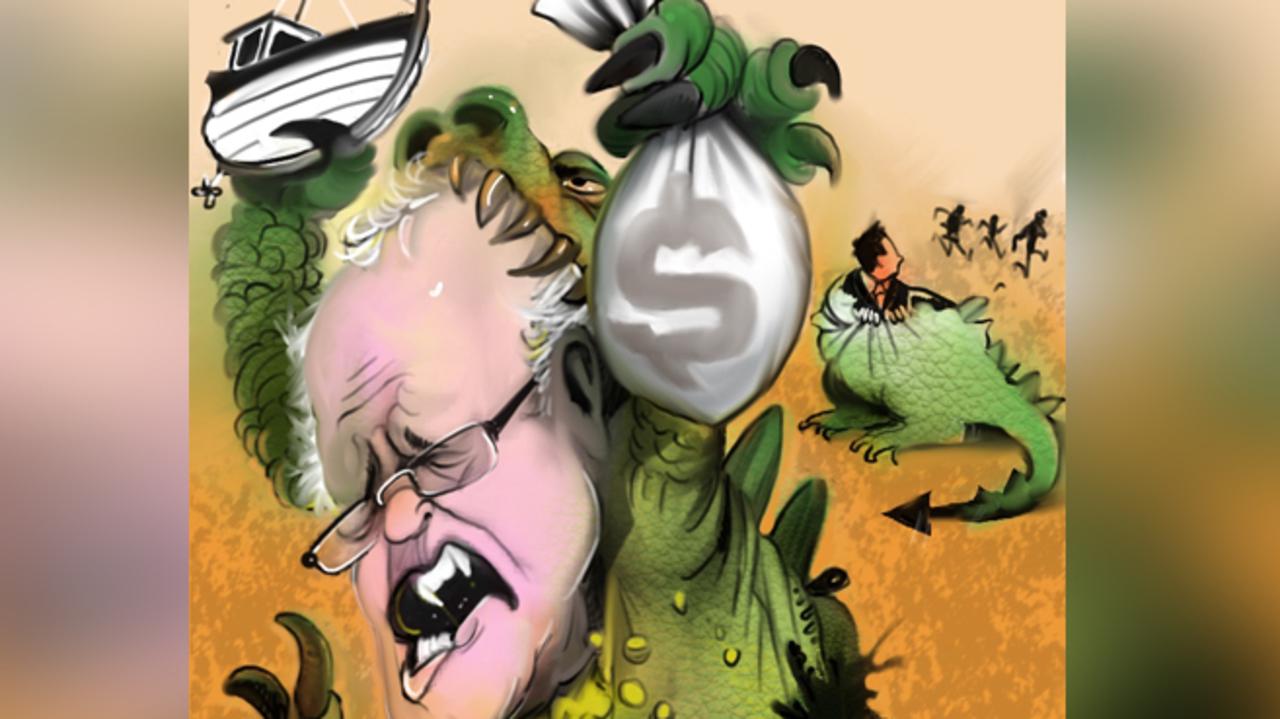Time is on Malcolm Turnbull’s side

If there were a federal election this weekend, Malcolm Turnbull’s government would probably get smashed. Luckily for him there isn’t one, nor for many weekends to come, barring extraordinary circumstances. The election will not be early if Turnbull can help it. Think mid-2019.
The plan at this stage is to bring down the budget a little earlier, as it was last time in 2016, to use it as a launch pad. Unlike last time, it will not be followed by an ultra-long, flaccid campaign. It will be much shorter and sharper. Nor will it be a double-dissolution election, which means as many as four non-Green crossbenchers could lose their Senate seats, making it that little bit easier for the Coalition to manage — assuming it wins.
It will be a long, hard road until May-June 2019, although there are plenty of recent examples of how best to avoid disaster.
The first is to stick to the timetable and serve a full term. People get cranky if leaders go early because it’s usually more about politicians protecting their backsides than voters’ hip pockets, which Theresa May learned to her great cost. And while they do not discount what has preceded the campaign, particularly if the government is plagued by regular bouts of disunity, it becomes critical as voters weigh up the offers and reassess the leaders.
The Liberals are a long way from campaign-ready. They have no money and new personnel at the helm. The grassroots feedback for federal director Andrew Hirst and federal president Nick Greiner is very positive so far. Hirst consults; and, having worked for three Liberal leaders — Turnbull, Tony Abbott and Brendan Nelson — and survived them all, is well-liked. Greiner has been on a listening tour where he has actually listened, and his professional management of executive meetings has been welcomed. It has been a long time since the party had officials who heeded anyone other than the leader and his office.
They have three campaigns to dissect that contain important lessons for the next federal campaign: the one here on same-sex marriage, then the national campaigns in New Zealand and Germany.
While still on course to win, the fight for same-sex marriage has been abysmal. If anyone is in charge of it, it is not obvious. It has been out-campaigned by the No camp, with its ability to exploit the media, its expertise in running scare campaigns and its utter ruthlessness in branding the Yes camp a haven of intolerance, nastiness or violence, holding it responsible for the stupid words or actions of every nutter or extremist.
It is quite a feat for one segment of society, having faced persecution, to turn it against another segment of society that has also suffered persecution. Some of us are old enough to remember when poofter-bashing was something of a national sport. We knew — or knew of — men who had been beaten to death. Now, according to the Australian Christian Lobby’s Lyle Shelton, after it was prised out of him by Laura Jayes on Sky, it should be legal for non-religious entities (excluding, curiously, taxis) to discriminate against gay men and women planning marriage. If it is illegal to discriminate against them now when they are single, why should it be in any way shape or form permissible for them to be discriminated against if they are wed? Sorry, but this is seriously warped.
The Yes campaign had two compelling advocates, Tiernan Brady and Janine Middleton, at the National Press Club a few weeks ago. If it were left to people like them, or Jennifer Westacott, not celebrities, the outcome would not be in any doubt. Celebrities do not win votes, except for themselves at the Oscars or Logies.
Brady, who ran the Irish referendum, has been surprised at the harsh tone of the Australian debate on social and mainstream media. He surmises the Irish restraint stemmed from the fact that it wasn’t so long ago the Irish found violent words provoked violent action, so they exercised more care in what they said and how they said it.
Perhaps after what happened to Tony Abbott, which was disgraceful on every level whatever the motive behind it, people will exercise more restraint. Unfortunately the intolerance of extremists on each side makes that unlikely.
Also, the weeks and days Yes advocates spend complaining about the unfairness of being asked to vote are weeks and days lost, not only because it has convinced some supporters not to dignify the process by voting. When the campaign is on, stay focused on the objective. Stop the whingeing, stop trying to score political points. Seize the moment, because it is a rare one in Australian politics. For the first time in a long time, individuals have the power, via the postal box, to make something happen. Concentrate on harnessing that rather than wasting precious airtime telling people — again — how awful it is that the government is making them vote.
More broadly, whatever the difficulties ahead, including the haggling for a coalition forced by the complexity of their electoral systems, the bottom line in Germany and New Zealand was that incumbents won the campaigns, secured more votes than their opponents and appear on track to retain government. Bill English now rates as the Angela Merkel of the Pacific. Both are living proof that charisma can be overrated. Stability, experience and resilience mattered. People made a judgment about the state of the economy, then opted not to risk it.
Merkel looked like she was finished after allowing in a million extra migrants, which raises the prospect of immigration as the next internal flashpoint for Turnbull after he beds down same-sex marriage and energy.
Another important lesson out of Germany, where the far-right Alternative for Germany won 13 per cent of the vote, stripping support from both left and right to secure seats in parliament, is the need for major parties to differentiate themselves from their opponents without going to extremes.
The New Zealand campaign will get closer attention from the professionals on both sides here. What mattered most there was authenticity, economic credibility, addressing the issues of concern to households, backed by a well-pitched, tightly controlled campaign, making full use of social media, with the leader doggedly staying on course. English also benefited from having a united team after a seamless leadership transition, a luxury Turnbull does not have. His small luxury is time.



To join the conversation, please log in. Don't have an account? Register
Join the conversation, you are commenting as Logout